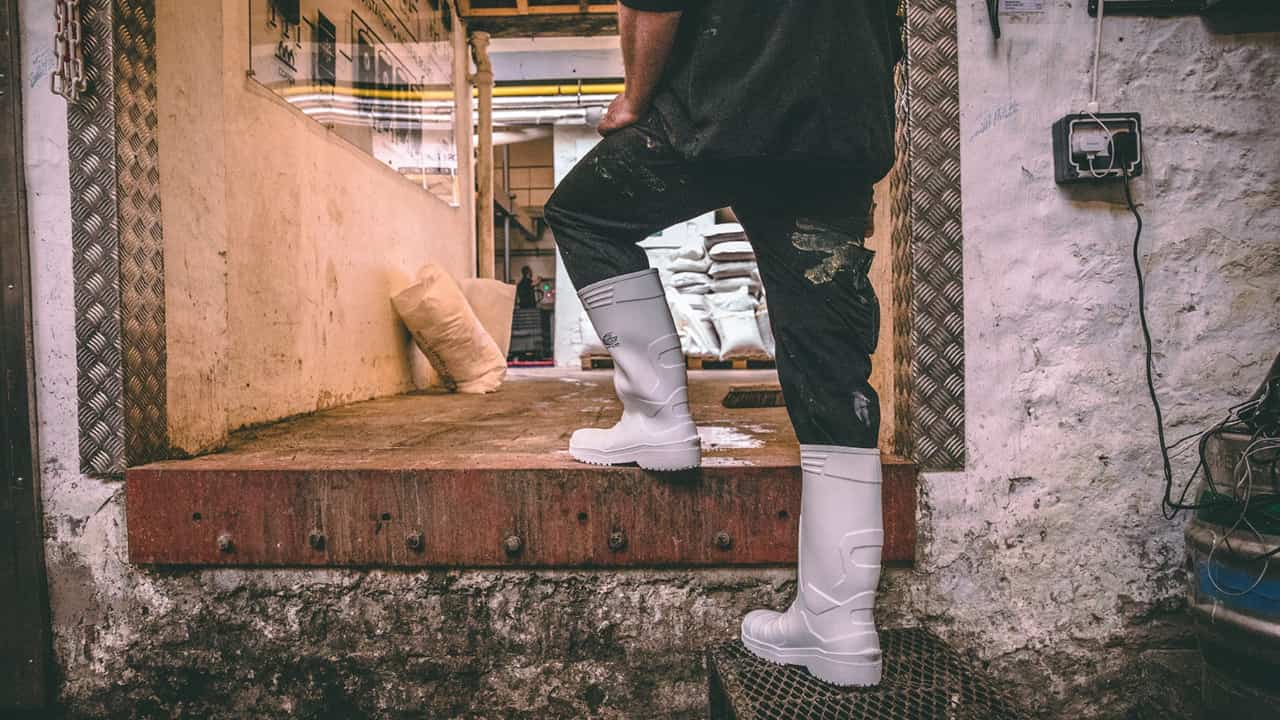There are many different industries that require cashiers: banks, retail shops, coffee shops, supermarkets, fast-food, restaurants, and more, so it's safe to say cashiers are vital in the UK. Currently in the UK, job boards advertise more than 1,500 available cashier positions with 2.9 million people already working in this country as cashiers (not counting the banking industry). However, working as a cashier can have its dangers since cashiers are particularly at risk for injuries from muscle strain to fatigue. Find out all about the 7 common cashier injuries and how to avoid them.

1. Arm and wrist injuries
With repetitive motions, cashiers’ wrists and arms are in danger for strain or even bruising. More serious wrist injury can lead to carpal tunnel, which is compression of the median nerve, often through strenuous repetitive action. If you aren’t careful, you can cause injury to your ligaments, joints, or tendons.
To treat and prevent, try and avoid repeated motions, and rest as often as possible. Ice your wrist to reduce pain and swelling; use compression bandages; elevate your wrist above your heart (on a pillow or back of a chair); or you can take anti-inflammatory painkillers. Cashiers with more serious injury or strain can use a cast or splint to keep the wrist immobile. If you’re commonly suffering from injuries, use compression gloves and bandages at work.
2. Back problems
Standing all day and bending slightly puts pressure on muscles, bones, and discs in the back. Pain and stiffness can result over time. Repetitive movement can also cause nerve damage in the back, causing pain.
Try and stand up tall when you’re at work with your shoulders back, or sit up straight if you sit down for your job. Take little walks regularly. If you work stocking shelves in addition to cashier duty, make sure you’re lifting properly. To ease back pain, use a foam roller or tennis ball to massage the areas, and take hot baths. Sleep with proper neck support, and/or a pillow between your legs if you sleep on your side to keep proper pelvic alignment - so your back muscles do not pull to one side. Regular exercise to help strengthen back muscles can also help too.

3. Pinched nerves
Besides pinched nerves in the back, it’s common for cashiers to experience pinched nerves in the neck. Pinched nerves cause pain, sometimes numbness, and even headaches caused by pressure created by repetitive motions, or holding your body in one position for long periods of time. Inflammation can cause pressure on nerve roots, causing pain to radiate.
Surprisingly, pinched neck nerves can be treated with calcium (1000 mg minimum per day) and potassium. The best sources are from darky, leafy greens like spinach and kale as well as sesame seeds and seaweed (dairy is a last resort as absorption is tricky without the correct amount of vitamin D). Potassium is useful for cell metabolism, and consumption can restore nerve function. Eat apricots, bananas, avocado, and nuts like cashews and walnuts for the best sources of potassium.
Other more traditional remedies are sitting up straight because bending forward even slightly adds at least 10 lbs of pressure on the neck, getting extra sleep, exercising to encourage blood circulation, limiting neck movement at night with a brace, icing your neck, and even seeing a chiropractor.
4. Repetitive stress injuries
Mostly covered in the above categories, anything when done over and over can cause strain, and over time that strain can result in more serious complications such as a repetitive stress injury. If there’s any action that you know you do regularly, which is causing you pain, find an alternative way to do that action if possible.
Treat with anti-inflammatory painkillers, and use good posture.
5. Muscle pulls
Muscle pulls can happen when you’re fatigued, when muscles are overused, or improperly used. Pulls are most common for cashiers in the lower back, neck, shoulder, and hamstring. Pulls can cause pain and limit movement. Damage may be from tearing muscle fibers and tendons, or damage to blood vessels or nerve ending irritation.
To heal a muscle pull, take an anti-inflammatory medication, ice or heat the injury over a towel as neither should be applied directly to the skin. Eat extra protein to encourage muscle repair. Use the “price” formula of protection, rest, ice, compression, and elevation to protect the muscle from further injury. Rest your muscles and avoid activities that cause further strain. Apply ice to reduce swelling, or heat to ease pain. Compress the area, but do not wrap tightly to reduce swelling. Elevate the injured area.
To prevent injury, stretch daily, exercise, and warm up before strenuous activity.
6. Fatigue
The HSE notes that with “unusual or late” working hours, cashiers are at risk for fatigue. Since retailers often have different hours - you may open very early or close very late - your body may not have time to adjust to different schedules; the same may not apply to 9 to 5 jobs like working as a bank teller, however. Unusual or long working hours can cause fatigue, which can have negative long-term effects. Short term effects include decreased patience, temper, brain fogs, memory issues, lack of concentration, and inability to make the best decisions. Long term, lack of sleep can lead to obesity, heart problems, high blood pressure, decreased immune system, and more.
To prevent and treat fatigue, make sure you’re getting the right amount of sleep for your body. Try going to bed 30-60 minutes earlier each night, and make sure you get between 6 and 8 hours of sleep. You can use a sleep tracking app to find out not only how much sleep you’re getting, but also to calculate the best wake up times that will see you through the best REM sleep cycles, allowing you to wake up feeling rested and refreshed.
7. Slips and trips
The most common workplace injury is slips and trips, and when you work as a cashier safety and comfort are key. It’s vital to have safe, slip-resistant footwear that can comfortably last all day without causing undue pain and stress to your joints, hips, or knees. To prevent slips, trips, and injury, choose a pair of safe shoes with extra cushioning and slip-resistance. You can wear anything from trainers to dress shoes.











